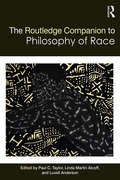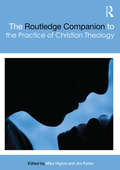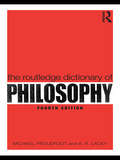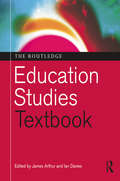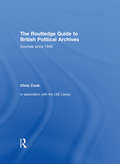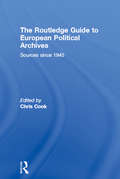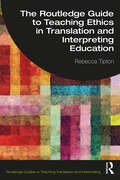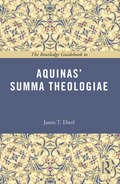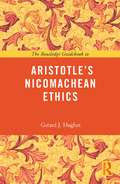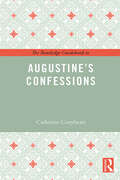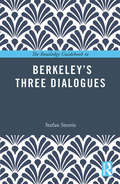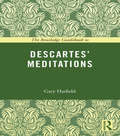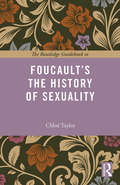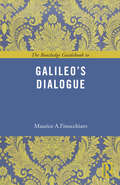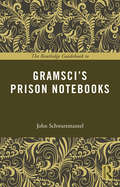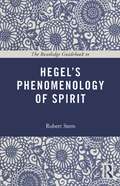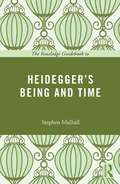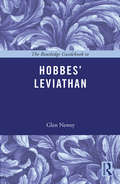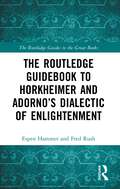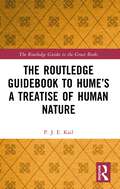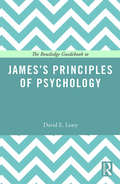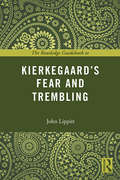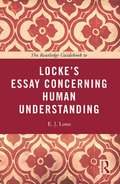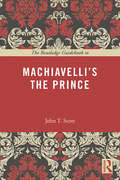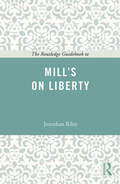- Table View
- List View
The Routledge Companion to the Philosophy of Race (Routledge Philosophy Companions)
by Paul C. Taylor Linda Martín Alcoff Luvell AndersonFor many decades, race and racism have been common areas of study in departments of sociology, history, political science, English, and anthropology. Much more recently, as the historical concept of race and racial categories have faced significant scientific and political challenges, philosophers have become more interested in these areas. This changing understanding of the ontology of race has invited inquiry from researchers in moral philosophy, metaphysics, epistemology, philosophy of science, philosophy of language, and aesthetics. The Routledge Companion to Philosophy of Race offers in one comprehensive volume newly written articles on race from the world’s leading analytic and continental philosophers. It is, however, accessible to a readership beyond philosophy as well, providing a cohesive reference for a wide student and academic readership. The Companion synthesizes current philosophical understandings of race, providing 37 chapters on the history of philosophy and race as well as how race might be investigated in the usual frameworks of contemporary philosophy. The volume concludes with a section on philosophical approaches to some topics with broad interest outside of philosophy, like colonialism, affirmative action, eugenics, immigration, race and disability, and post-racialism. By clearly explaining and carefully organizing the leading current philosophical thinking on race, this timely collection will help define the subject and bring renewed understanding of race to students and researchers in the humanities, social science, and sciences.
The Routledge Companion to the Practice of Christian Theology (Routledge Religion Companions)
by Mike Higton Jim FodorThis Companion introduces readers to the practice of Christian theology, covering what theologians do, why they do it, and what steps readers can take in order to become theological practitioners themselves. The volume aims to capture the variety of practices involved in doing theology, highlighting the virtues that guide them and the responsibilities that shape them. It also shows that the description of these practices, virtues and responsibilities is itself theological: what Christian theologians do is shaped by the wider practices and beliefs of Christianity. Written by a team of leading theologians, the Companion provides a unique resource for students and scholars of theology alike.
The Routledge Dictionary of Philosophy
by Michael Proudfoot A.R. LaceyFirst published in 1976, the Dictionary of Philosophy has established itself as the best available text of its kind, explaining often unfamiliar, complicated and diverse terminology. Thoroughly revised and expanded, this fourth edition provides authoritative and rigorous definitions of a broad range of philosophical concepts. Concentrating on the Western philosophical tradition, The Routledge Dictionary of Philosophy offers an illuminating and informed introduction to the central issues, ideas and perspectives in core fields such as metaphysics, epistemology, and logic. It includes concise biographical entries for more than one hundred major philosophers, from Plato and Aristotle through to contemporary figures such as Dummett, McDowell, Parfit and Singer. All major entries are followed by helpful suggestions for further reading, including web links, and contain extensive cross-referencing to aid access and comprehension. This edition also features a brand new guide to the most useful philosophy sites on the internet. The Routledge Dictionary of Philosophy is an invaluable and up-to-date resource for all students of philosophy.
The Routledge Education Studies Textbook
by James Arthur and Ian DaviesThe Routledge Education Studies Textbook is an academically wide-ranging and appropriately challenging resource for students beyond the introductory stages of a degree programme in Education Studies. Written in a clear and engaging style, the chapters are divided into three sections that examine fundamental ideas and issues, explore educational contexts, and offer study and research guidance respectively. To support the development of critical thinking, debates between contributors are interspersed within sections and address the following questions: Do private schools legitimise privilege? Should the liberal state support religious schooling? Are developments in post-14 education reducing the divide between the academic and the vocational? Do schools contribute to social and community cohesion? Do traditional and progressive teaching methods exist or are there only effective and ineffective methods? Educational Research: a foundation for teacher professionalism? Each chapter opens with an overview of the rationale behind it and closes with a summary of the main points. At the end of every chapter key questions are posed, encouraging the student to critically reflect on the content, and suggestions for further reading are made. The Routledge Education Studies Textbook is essential reading for students of Education Studies, especially during second and third years of the undergraduate degree. It will be of interest to trainee teachers, including those working towards M Level. A companion volume, The Routledge Education Studies Reader by the same editors, contains key classic and contemporary academic articles and has been designed to be used alongside this Textbook.
The Routledge Guide to British Political Archives: Sources since 1945
by Chris CookThis major new reference work provides an authoritative and wide-ranging guide to archive sources now becoming available for British political history since 1945. With a user-friendly layout, the book presents a comprehensive range of 1,500 personal papers from leading statesmen, backbench politicians, writers, campaigners, diplomats and generals which cover the key aspects of British history since of the end of the Second World War. Compiled by an experienced archivist, this comprehensive, easy-to-use and authoritative guide is an invaluable resource for researchers of modern British history.
The Routledge Guide to European Political Archives: Sources since 1945
by Chris CookThis new publication, a sister volume to the highly-acclaimed Routledge Guide to British Political Archives, provides a wide-ranging survey of the non-governmental archive sources for historians of post-war Europe. It provides, within a single volume, a rich treasure trove of resources drawn from the archives of the member states of the European Union and beyond. These major archive resources range from the International Institute of Social History in Amsterdam to the Modern Records Centre at Warwick University, from the European University Institute at Florence to the Archive of Social Democracy near Bonn, from the Feltrinelli Institute in Milan to the Monnet Foundation in Lausanne. The volume also concentrates on providing resources for areas of Europe’s modern political past now increasingly attracting serious historical research. They include the initial post-war reconstruction era, the rebirth of social democracy in Germany and Italy, the beginning of European integration, relations with Eastern Europe, the Cold War, decolonisation, the fall of Communism, and so forth. A vital part of the story is represented by the papers of the principal architects of European integration, such as Monnet, Spaak, Spinelli, Mansholt, and so forth. However, the remit of this volume extends far beyond statesmen and politicians. It aims to embrace a wider spectrum of European political activism – from libertarians to environmentalists, economists and human rights activists, campaigners for women’s rights, peace activists, anti-globalists, trade unionists, leaders of the student movement, anarchists, federalists and anti-federalists, and a plethora of others. The wealth of information provided here will make this new publication the standard point of reference for students and historians.
The Routledge Guide to Teaching Ethics in Translation and Interpreting Education (Routledge Guides to Teaching Translation and Interpreting)
by Rebecca TiptonRoutledge Guides to Teaching Translation and Interpreting is a series of practical guides to key areas of translation and interpreting for instructors, lecturers, and course designers. This book provides university-level educators in translation and interpreting with a practical set of resources to support a pedagogically engaged approach to ethics. Encompassing critical engagement and reflection, the resources have been designed to be easily developed and adapted to specific teaching contexts. The book promotes an integrated approach to ethics teaching. Its core goals are to improve the quality of student learning about ethics, develop confidence in ethical decision-making, and enhance a commitment to ethics beyond the programme of study. The approach includes emphasis on problems of practice, or “ethical dilemmas”, using real-world examples, but simultaneously encompasses a more wide-ranging set of ethical questions for both educators and their students. Including chapters on the ethical implications of using technology and the ethics involved in assessment and feedback, equal weight is given to both translation and interpreting. Providing a key point of reference for information on different theories of ethics, insight into pedagogical practices around the globe, and practical guidance on resource development for classroom use and extension activities for independent learning, this is an essential text for all instructors and lecturers teaching ethics in translation and interpreting studies.
The Routledge Guidebook to Aquinas' Summa Theologiae (The Routledge Guides to the Great Books)
by Jason T EberlThe Routledge Guidebook to Aquinas' Summa Theologiae introduces readers to a work which represents the pinnacle of medieval Western scholarship and which has inspired numerous commentaries, imitators, and opposing views. Outlining the main arguments Aquinas utilizes to support his conclusions on various philosophical and theological questions, this clear and comprehensive guide explores: the historical context in which Aquinas wrote a critical discussion of the topics outlined in the text including theology, metaphysics, epistemology, psychology, ethics, and political theory the ongoing influence of the Summa Theologiae in modern philosophy and theology. Offering a close reading of the original work, this guidebook highlights the central themes of Aquinas' masterwork and is an essential read for anyone seeking an understanding of this highly influential work in the history of philosophy.
The Routledge Guidebook to Aristotle's Nicomachean Ethics (The Routledge Guides to the Great Books)
by Gerard J HughesWritten by one of the most important founding figures of Western philosophy, Aristotle’s Nicomachean Ethics represents a critical point in the study of ethics which has influenced the direction of modern philosophy. The Routledge Guidebook to Aristotle’s Nicomachean Ethics introduces the major themes in Aristotle’s great book and acts as a companion for reading this key work, examining: The context of Aristotle’s work and the background to his writing Each separate part of the text in relation to its goals, meanings and impact The reception the book received when first seen by the world The relevance of Aristotle’s work to modern philosophy, its legacy and influence. With further reading included throughout, this text is essential reading for all students of philosophy, and all those wishing to get to grips with this classic work.
The Routledge Guidebook to Augustine's Confessions (The Routledge Guides to the Great Books)
by Catherine ConybeareAugustine’s Confessions is one of the most significant works of Western culture. Cast as a long, impassioned conversation with God, it is intertwined with passages of life-narrative and with key theological and philosophical insights. It is enduringly popular, and justly so. The Routledge Guidebook to Augustine’s Confessions is an engaging introduction to this spiritually creative and intellectually original work. This guidebook is organized by themes: the importance of language creation and the sensible world memory, time and the self the afterlife of the Confessions. Written for readers approaching the Confessions for the first time, this guidebook addresses the literary, philosophical, historical and theological complexities of the work in a clear and accessible way. Excerpts in both Latin and English from this seminal work are included throughout the book to provide a close examination of both the autobiographical and theoretical content within the Confessions.
The Routledge Guidebook to Berkeley’s Three Dialogues (The Routledge Guides to the Great Books)
by Stefan StorrieThe Routledge Guidebook to Berkeley’s Three Dialogues is an engaging introduction to the last of a trio of works that cemented Berkeley’s position as one of the truly great philosophers of the western canon. Berkeley’s distinctive idealist philosophy has been a challenge and inspiration for thinkers ever since. Written for readers approaching this seminal work for the first time, this book: provides the philosophical context in which Three Dialogues was written; critically discusses the arguments in each of the Three Dialogues; and examines some of the principal disputes concerning the interpretation of his work. The Routledge Guidebook to Berkeley’s Three Dialogues offers a clear and comprehensive guide to this ground-breaking volume and includes further reading sections at the end of each chapter. This is essential reading for anyone who wants to understand this influential work.
The Routledge Guidebook to Descartes' Meditations (The Routledge Guides to the Great Books)
by Gary HatfieldDescartes is widely regarded to be the father of modern philosophy and his Meditations is among the most important philosophical texts ever written. The Routledge Guidebook to Descartes’ Meditations introduces the major themes in Descartes’ great book and acts as a companion for reading this key work, examining: The context of Descartes’ work and the background to his writing Each separate part of the text in relation to its goals, meanings and impact The reception the book received when first seen by the world The relevance of Descartes’ work to modern philosophy, it’s legacy and influence With further reading included throughout, this text follows Descartes’ original work closely, making it essential reading for all students of philosophy, and all those wishing to get to grips with this classic work.
The Routledge Guidebook to Foucault's The History of Sexuality (The Routledge Guides to the Great Books)
by Chloe TaylorMichel Foucault’s The History of Sexuality is one of the most influential philosophical works of the twentieth century and has been instrumental in shaping the study of Gender, Feminist Theory and Queer Theory. But Foucault’s writing can be a difficult book to grasp as Foucault assumes a familiarity with the intellectually dominant theories of his time which renders many passages obscure for newcomers to his work. The Routledge Guidebook to Foucault’s The History of Sexuality offers a clear and comprehensive guide to this groundbreaking work, examining: The historical context in which Foucault wrote A critical discussion of the text, which examines the relationship between The History of Sexuality, The Use of Pleasure and The Care of The Self The reception and ongoing influence of The History of Sexuality Offering a close reading of the text, this is essential reading for anyone studying this enormously influential work.
The Routledge Guidebook to Galileo's Dialogue: Routledge Guidebook To Galileo's Dialogue (The Routledge Guides to the Great Books)
by Maurice A. FinocchiaroThe publication in 1632 of Galileo’s Dialogue on the Two Chief World Systems, Ptolemaic and Copernican marked a crucial moment in the ‘scientific revolution’ and helped Galileo become the ‘father of modern science’. The Dialogue contains Galileo’s mature synthesis of astronomy, physics, and methodology, and a critical confirmation of Copernicus’s hypothesis of the earth’s motion. However, the book also led Galileo to stand trial with the Inquisition, in what became known as ‘the greatest scandal in Christendom’.In The Routledge Guidebook to Galileo's Dialogue, Maurice A. Finocchiaro introduces and analyzes: the intellectual background and historical context of the Copernican controversy and Inquisition trial; the key arguments and critiques that Galileo presents on both sides of the ‘dialogue’; the Dialogue’s content and significance from three special points of view: science, methodology, and rhetoric; the enduring legacy of the Dialogue and the ongoing application of its approach to other areas. This is an essential introduction for all students of science, philosophy, history, and religion wanting a useful guide to Galileo’s great classic.
The Routledge Guidebook to Gramsci's Prison Notebooks (The Routledge Guides to the Great Books)
by John SchwarzmantelGramsci’s Prison Notebooks are one of the most important and original sources of modern political philosophy but the Prison Notebooks present great difficulties to the reader. Not originally intended for publication, their fragmentary character and their often cryptic language can mystify readers, leading to misinterpretation of the text. The Routledge Guidebook to Gramsci’s Prison Notebooks provides readers with the historical background, textual analysis and other relevant information needed for a greater understanding and appreciation of this classic text. This guidebook: Explains the arguments presented by Gramsci in a clear and straightforward way, analysing the key concepts of the notebooks. Situates Gramsci’s ideas in the context of his own time, and in the history of political thought demonstrating the innovation and originality of the Prison Notebooks. Provides critique and analysis of Gramsci’s conceptualisation of politics and history (and culture in general), with reference to contemporary (i.e. present-day) examples where relevant. Examines the relevance of Gramsci in the modern world and discusses why his ideas have such resonance in academic discourse Featuring historical and political examples to illustrate Gramsci's arguments, along with suggestions for further reading, this is an invaluable guide for anyone who wants to engage more fully with The Prison Notebooks
The Routledge Guidebook to Hegel's Phenomenology of Spirit (The Routledge Guides to the Great Books)
by Robert SternThe Phenomenology of Spirit is arguably Hegel’s most influential and important work, and is considered to be essential in understanding Hegel’s philosophical system and his contribution to western philosophy. The Routledge Guidebook to Hegel’s Phenomenology of Spirit introduces the major themes in Hegel’s great book and aids the reader in understanding this key work, examining: The context of Hegel’s thought and the background to his writing Each separate part of the text in relation to its goals, meaning and significance The reception the book has received since its publication The relevance of Hegel’s ideas to modern philosophy With a helpful introductory overview of the text, end of chapter summaries and further reading included throughout, this text is essential reading for all students of philosophy, and all those wishing to get to grips with Hegel’s contribution to our intellectual world.
The Routledge Guidebook to Heidegger's Being and Time (The Routledge Guides to the Great Books)
by Stephen MulhallThe Routledge Guidebook to Heidegger’s Being and Time examines the work of one of the most controversial thinkers of the twentieth century. Heidegger’s writings are notoriously difficult, requiring careful reading. This book analyses his first major publication, Being and Time, which to this day remains his most influential work. The Routledge Guidebook to Heidegger’s Being and Time explores: The context of Heidegger’s work and the background to his writing Each separate part of the text in relation to its goals, meanings and impact The reception the book received when first seen by the world The relevance of Heidegger’s work to modern philosophy, its legacy and influence. Following Heidegger’s original work closely, this guidebook examines the two central themes of scepticism and death. Mulhall skilfully examines the relationship between the book’s two parts, making it essential reading for all students of philosophy, and all those wishing to get to grips with this classic work.
The Routledge Guidebook to Hobbes' Leviathan (The Routledge Guides to the Great Books)
by Glen NeweyHobbes is widely regarded as one of the most important figures in the history of ideas and political thought, and his seminal text Leviathan is widely recognised as one of the greatest works of political philosophy ever written. The Routledge Guidebook to Hobbes’ Leviathan introduces the major themes in Hobbes’ great book and acts as a companion for reading this key work, examining: The context of Hobbes’ work and the background to his writing Each separate part of the text in relation to its goals, meanings and impact The reception the book received when first seen by the world The relevance of Hobbes’ work to modern philosophy, it’s legacy and influence With further reading included throughout, this text follows Hobbes’ original work closely, making it essential reading for all students of philosophy and politics, and all those wishing to get to grips with this classic work.
The Routledge Guidebook to Horkheimer and Adorno’s Dialectic of Enlightenment (The Routledge Guides to the Great Books)
by Espen Hammer Fred RushComposed whilst in exile in the United States during the Second World War, Max Horkheimer and Theodor W. Adorno’s Dialectic of Enlightenment is the most famous and influential text of the Frankfurt School. A theoretical exploration of history, modernity, and culture, its core warning of crisis and regression remains highly relevant today. However, it is also a notoriously complex work of philosophy.The Routledge Guidebook to Horkheimer and Adorno’s Dialectic of Enlightenment is the first fully contextualized introduction to this foundational text in philosophy and social theory, addressing its central themes, reception, and influence. This Guidebook examines: The conceptual and intellectual background to Dialectic of Enlightenment. The ideas, themes, and arguments of the text. The reception and legacy of Dialectic of Enlightenment. A comprehensive and clearly written guide to this important text, The Routledge Guidebook to Horkheimer and Adorno’s Dialectic of Enlightenment will be invaluable to students coming to the work for the first time, as well as more advanced students and researchers in philosophy, politics, sociology, and the history of ideas.
The Routledge Guidebook to Hume’s A Treatise of Human Nature (The Routledge Guides to the Great Books)
by P. J. KailDavid Hume is widely acknowledged as the greatest philosopher to have written in the English language. His 1739/40 A Treatise of Human Nature is commonly regarded as his masterpiece. It is a profound work of great ambition, seeking to reorient philosophy by establishing a ‘science of human nature’.Following the structure of the original work closely, The Routledge Guidebook to Hume’s A Treatise of Human Nature provides a clear and accessible introduction to its key themes, and explores: the lasting philosophical significance of the work the context of Hume’s philosophy the character of Hume’s theory of human nature the two central themes of scepticism and naturalism the unity of the three original volumes. Written for readers approaching Hume’s seminal work for the first time, this guidebook includes a helpful overview of the text, chapter summaries and further reading throughout. It is an essential introduction for undergraduate students studying the history of modern philosophy, and all those who wish to engage more deeply with this classic work.
The Routledge Guidebook to James’s Principles of Psychology (The Routledge Guides to the Great Books)
by David E LearyThe Routledge Guidebook to James’s Principles of Psychology is an engaging and accessible introduction to a monumental text that has influenced the development of both psychological science and philosophical pragmatism in important and lasting ways. Written for readers approaching William James’s classic work for the first time as well as for those without knowledge of its entire scope, this guidebook not only places this work within its historical context, it provides clear explications of its intertwined aspects and arguments, and examines its relevance within today’s psychology and philosophy. Offering a close reading of this text, The Routledge Guidebook to James’s Principles of Psychology is divided into three main parts: • Background • Principles • Elaborations. It also includes two useful appendices that outline the sources of James’s various chapters and indicate the parallel coverages of two later texts written by James, an abbreviated version of his Principles and a psychological primer for teachers. This is essential reading for anyone who wants to understand this influential work.
The Routledge Guidebook to Kierkegaard's Fear and Trembling (The Routledge Guides to the Great Books)
by John LippittSøren Kierkegaard is one of the key figures of nineteenth century thought, whose influence on subsequent philosophy, theology and literature is both extensive and profound. Fear and Trembling, which investigates the nature of faith through an exploration of the story of Abraham and Isaac, is one of Kierkegaard’s most compelling and widely read works. It combines an arresting narrative, an unorthodox literary structure and a fascinating account of faith and its relation to ‘the ethical’. The Routledge Guidebook to Kierkegaard’s Fear and Trembling introduces and assesses: Kierkegaard’s life and the background to Fear and Trembling, including aspects of its philosophical and theological context The text and key ideas of Fear and Trembling, including the details of its account of faith and its connection to trust and hope The book’s reception history, the diversity of interpretations it has been given and its continuing interest and importance This Guidebook assumes no previous knowledge of Kierkegaard's work and will be essential reading for anyone studying the most famous text of this important thinker.
The Routledge Guidebook to Locke's Essay Concerning Human Understanding (The Routledge Guides to the Great Books)
by E. J. LoweJohn Locke is widely acknowledged as the most important figure in the history of English philosophy and An Essay Concerning Human Understanding is his greatest intellectual work, emphasising the importance of experience for the formation of knowledge. The Routledge Guidebook to Locke’s Essay Concerning Human Understanding introduces the major themes of Locke’s great book and serves as a companion to this key work, examining: The context of Locke’s work and the background to his writing Each part of the text in relation to its goals, meaning and impact The reception of the book when it was first seen by the world The relevance of Locke’s work to philosophy today, its legacy and influence With further reading suggested throughout, this text follows Locke’s original work closely, making it essential reading for all students of philosophy, and all those wishing to get to grips with this classic work.
The Routledge Guidebook to Machiavelli's The Prince (The Routledge Guides to the Great Books)
by John T. ScottNiccolò Machiavelli’s The Prince is one of the most influential works in the history of political thought and the adjective Machiavellian is well-known and perhaps even over-used. So why does the meaning of the text continue to be debated to the present day? And how does a contemporary reader get to grips with a book full of references to the politics of the early 16th Century? The Routledge Guidebook to Machiavelli’s The Prince provides readers with the historical background, textual analysis, and other relevant information needed for a greater understanding and appreciation of this classic text. This guidebook introduces: the historical, political and intellectual context in which Machiavelli was working the key ideas developed by Machiavelli throughout the text and the examples he uses to illustrate them the relationship of The Prince to The Discourses and Machiavelli’s other works Featuring a timeline, maps and suggestions for further reading throughout, this book is an invaluable guide for anyone who wants to be able to engage more fully with The Prince.
The Routledge Guidebook to Mill's On Liberty (The Routledge Guides to the Great Books)
by Jonathan RileyJohn Stuart Mill’s On Liberty is widely regarded as one of the most influential and stirring pieces of political philosophy ever written. Ever relevant in our increasingly surveillance dominated culture, the essay argues strongly in favour of the moral rights of individuality, including rights of privacy and of freedom of expression. The Routledge Guidebook to Mill’s On Liberty introduces the major themes in Mill’s great book and aids the reader in understanding this key work, covering: the context of Mill’s work and the background to his writing each separate part of the text in relation to its goals, meanings and impact the reception the book received when first seen by the world the relevance of Mill’s work to modern philosophy. With further reading included for each chapter, this text is essential reading for all students of philosophy and political theory, and all those wishing to get to grips with this classic work of political philosophy.
